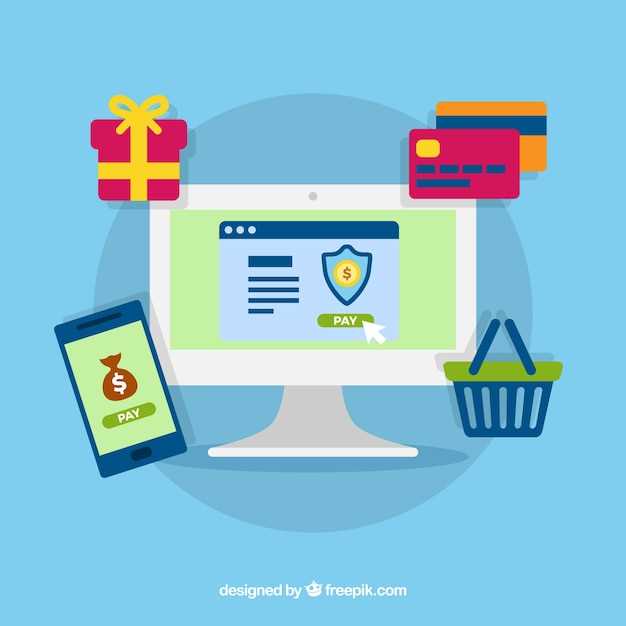
In the thriving world of e-commerce, purchasing parts and components online has become a convenient option for consumers and businesses alike. However, this convenience sometimes comes at the cost of security. Ensuring that your online transactions are secure is not only vital for protecting your personal and financial information but also essential for maintaining trust in the digital marketplace.
As part of the growing trend towards online shopping, understanding the key security measures to take when buying parts online can dramatically reduce the risk of fraud and identity theft. This article seeks to equip you with essential tips and strategies that will enhance your online purchasing experience while safeguarding your sensitive data.
From selecting reputable vendors to knowing how to spot secure payment options, the following guidelines will provide you with the knowledge to navigate your online shopping safely. By adopting smart payment practices, you can enjoy a seamless purchasing experience without compromising your security.
Identifying Secure E-Commerce Platforms for Transactions

When making purchases online, ensuring the security of your transactions is crucial. The first step in identifying a secure e-commerce platform is to check for the presence of SSL encryption. Look for URLs that begin with “https://” instead of the unsecure “http://”. The “s” indicates a secure connection, protecting your payment data during transmission.
Another important factor is the reputation of the platform. Research user reviews and ratings on various sites to gauge the overall reliability and security of the e-commerce site. Established platforms typically have robust security measures in place due to their experience and customer base.
Additionally, look for e-commerce sites that offer multiple secure payment options. Platforms that partner with recognized payment processors like PayPal, Stripe, or major credit cards often enhance your protection against fraud. These processors usually include additional layers of security, such as two-factor authentication or buyer protection programs.
It is also advisable to examine the site’s privacy policy. A secure e-commerce platform will clearly outline how your personal and payment information is collected, used, and stored. Ensure that they have measures in place to protect your data from unauthorized access.
Finally, consider the availability of customer support. Secure platforms typically provide accessible customer service to address any concerns regarding payment issues or transaction disputes. Reliable support can help resolve problems quickly and protect your interests during online transactions.
Utilizing Encryption and Two-Factor Authentication Methods
In the realm of e-commerce, ensuring the security of payment transactions is paramount. Utilizing encryption is one of the most effective ways to protect sensitive information during online part purchases. Encryption works by converting data into a coded format, making it unreadable to unauthorized users. When consumers enter payment details, robust encryption protocols, such as SSL (Secure Socket Layer) and TLS (Transport Layer Security), secure the connection between the user’s browser and the merchant’s server. This means that even if hackers intercept the data, they will be unable to decipher it.
Moreover, implementing two-factor authentication (2FA) adds an extra layer of security, significantly reducing the risk of unauthorized access to sensitive accounts. With 2FA, users must provide two forms of identification before completing a transaction or logging into their accounts. Typically, this involves something the user knows (a password) and something the user has (a temporary code sent to a mobile device or generated by an authentication app). This dual requirement makes it drastically more challenging for cybercriminals to compromise an account, even if they have obtained the password.
For online part purchases, adopting both encryption and two-factor authentication creates a fortified defense against fraud. Merchants should prioritize these security measures to build trust with their customers, encouraging them to complete transactions without fear of security breaches. By fostering a safe e-commerce environment where secure payment methods are standard, retailers can enhance customer satisfaction and loyalty.
Avoiding Common Payment Scams and Fraudulent Activities

When making online part purchases, it is crucial to ensure that your payment methods are secure and that you are aware of common scams. Fraudsters often devise cunning ways to exploit unsuspecting buyers, leading to financial loss and compromised personal information.
One of the most prevalent scams involves phishing emails that appear to come from legitimate vendors. These emails generally contain links that direct you to fake websites replicating authentic online stores. To avoid falling victim to this scam, always verify the sender’s email address and navigate directly to the website instead of clicking links in unsolicited emails.
Another tactic used by fraudsters is the use of counterfeit payment platforms. Always ensure that the website you are using has a secure payment gateway. Look for URLs that begin with “https://” and verify that the site has proper security certificates. Reliable payment methods, such as PayPal or other reputable services, can also offer additional layers of protection.
Be wary of offers that seem too good to be true. Scammers often lure buyers with significantly discounted prices or exclusive deals. Research the market price for the parts you are interested in before making a payment, and if something appears suspiciously cheap, it could be a red flag.
Always double-check your payment confirmation. Scammers occasionally send fake order confirmations or receipts to induce a sense of security, making it crucial to validate the transaction in your payment account or the vendor’s site. Ensure that your statements reflect all transactions accurately, and report any discrepancies immediately.
Finally, consider using a virtual credit card or dedicated payment accounts specifically for online transactions. This approach limits exposure and provides extra security for your real financial information. Staying informed and vigilant will significantly reduce the risks associated with fraudulent payment activities in online shopping.
